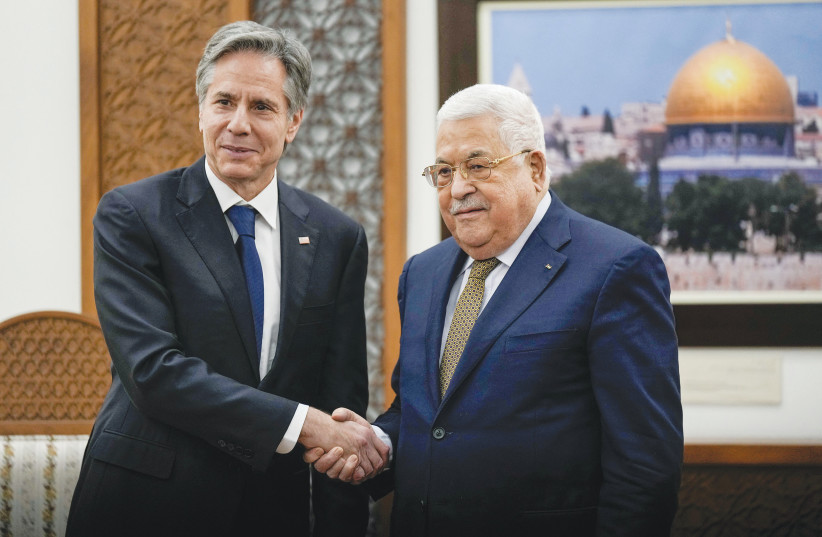Saudi Arabia has let the Biden administration know that resolving Palestinian issues is critical for any normalization deal with Israel, US Secretary of State Antony Blinken said.
“It is also clear from what we hear from the Saudis that if this process is to move forward, the Palestinian piece is going to be very important too,” he said on Wednesday in an interview with the podcast Pod Save the World.
He spoke as the Biden administration has been increasingly public about its pursuit of a security pact with Saudi Arabia that would include a normalization deal with Israel.
Such a deal would come on top of the US-backed 2020 Abraham Accords, in which Israel agreed to suspend the annexation of West Bank settlements in exchange for normalization deals with four Arab countries: the United Arab Emirates, Bahrain, Morocco, and Sudan.
Blinken: Palestinians cannot be ignored
Israeli normalization with the Arab world and “any of the efforts that are going on to improve relations between Israel and its neighbors can not be a substitute for Israel and the Palestinians resolving their differences and having a much better future for Palestinians,” Blinken said.

“In our judgment that needs to involve a two-state solution” to the Israeli-Palestinian conflict, he explained.
Israel’s ambassador to the US, Mike Herzog, said he believed there was a window of opportunity with regard to a Saudi deal. He pledged that Israel would do everything it could to ensure that an agreement would come to fruition.
During a panel discussion for the Washington-based think tank the Atlantic Council, Herzog said he hoped the Palestinians would seize the opportunity to join the process, rather than oppose it, as they did the Abraham Accords.
“I was hoping when we broke through to the Abraham Accords that the Palestinians would realize that this would benefit them as well. Instead, they chose to oppose it, to fight it,” Herzog said.
He speculated that the Palestinians might have little choice here, given that it would be hard for them to stand against Saudi Arabia.
“If we move ahead with Saudi Arabia it will be much more difficult for the Palestinians to confront Saudi Arabia,” Herzog said.
“There is an opportunity and I hope that they will draw the conclusion and that, rather than trying to block the tide, they will join, and ultimately I think that is important,” Herzog continued.
Earlier this week National Security Advisor Tzachi Hanegbi said the Palestinians had spoken with the US, the Saudis, and the Israelis about a significant Palestinian component to the deal.
He said Israel favored making gestures to the Palestinians as part of that deal as long as it doesn’t harm Israeli security. The Palestinian Authority, however, has sought concessions that would not be possible for the Israeli government in its current configuration to meet, such as recognition of Palestinian statehood.
Israel’s decision to allow some eight armored vehicles to be transferred to the PA security through the IDF-controlled Allenby Crossing at the Jordanian border sparked a political uproar among Prime Minister Benjamin Netanyahu’s far-right coalition members.
The far-right politicians were concerned in particular about an Army Radio report that a cache of 1,500 weapons, mainly rifles, were also transferred to the PA via Jordan from a US army base. Israel, the US, and the PA all denied that arms had been transferred.
Even members of Netanyahu’s own Likud Party have balked at the idea of linking Israel’s foreign policy with its treatment of the Palestinians.
On Wednesday, Foreign Minister Eli Cohen told his Norwegian counterpart, Anniken Huitfeldt, during a Jerusalem meeting that “Israel will not submit to external dictates on the issue of the Israeli-Palestinian conflict.
“We will work to expand the Abrahamic agreements,” he said, explaining that states and entities “that will not participate in expanding and deepening the circle of peace and normalization will simply be left behind and become irrelevant.”
